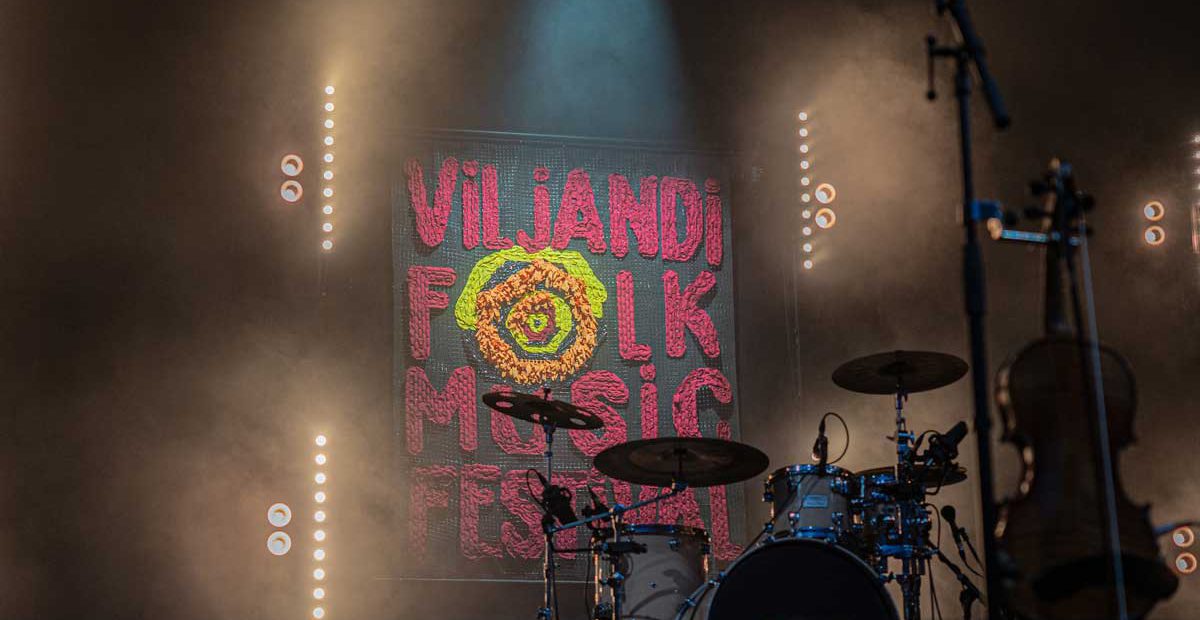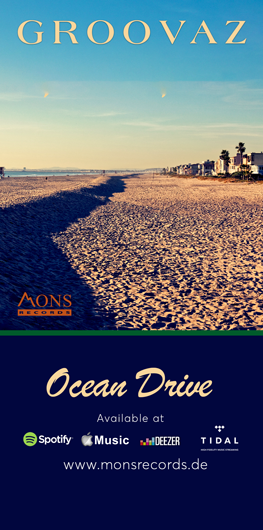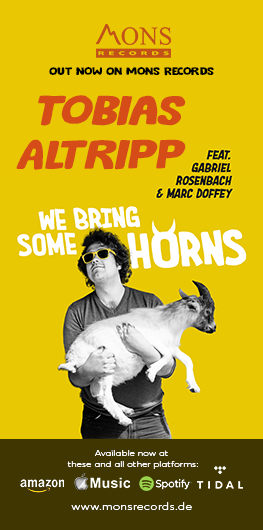Before I start, please accept my apologies. This article won’t be a jazz festival report, as it’s about a folk festival, although folk music is also a form of improvised music in the broadest sense. But it probably won’t even be a festival report, but rather a declaration of love.
To a festival, to an idea, to the people who had this idea 30 years ago and have continued steadfastly, to all the volunteers who make the four festival days run so smoothly, to the recycle and sustainability concept behind the event, the wonderfully joyful atmosphere, the great camaraderie between old and young. And to a country and its residents for whom their own culture holds as much importance as other musical worlds.
The festival that captured my heart is the Viljandi Folk Festival in Estonia. Viljandi is a small town in southern Estonia, a one-and-a-half-hour drive from the capital, Tallinn. Idyllically situated by a lake and featuring attractive wooden architecture, this town of 7,000 inhabitants is worth a visit. You can also explore the impressive centuries-old castle ruins that once belonged to the Livonian Order.
Things get lively on the last weekend in July when the Viljandi Folk Festival traditionally takes place in and around the castle ruins. Even in 2023, for the festival’s 30th anniversary, 25,000 people gathered on-site to enjoy four days of diverse folk music from Estonia and other parts of the world.
In 2023, artists from abroad included Djly Tapa from Mali and Canada, Le Diable à Cinq from Canada, Góbé from Hungary, Flook from Ireland and England, the Georgian male choir Tbilisi, Rahu The Fool from Latvia, El Khat from Israel, Ross Daly from Greece, Júlia Kozáková from Slovakia, Tęgie Chłopyfrom Poland, and Loten Namling from Tibet.
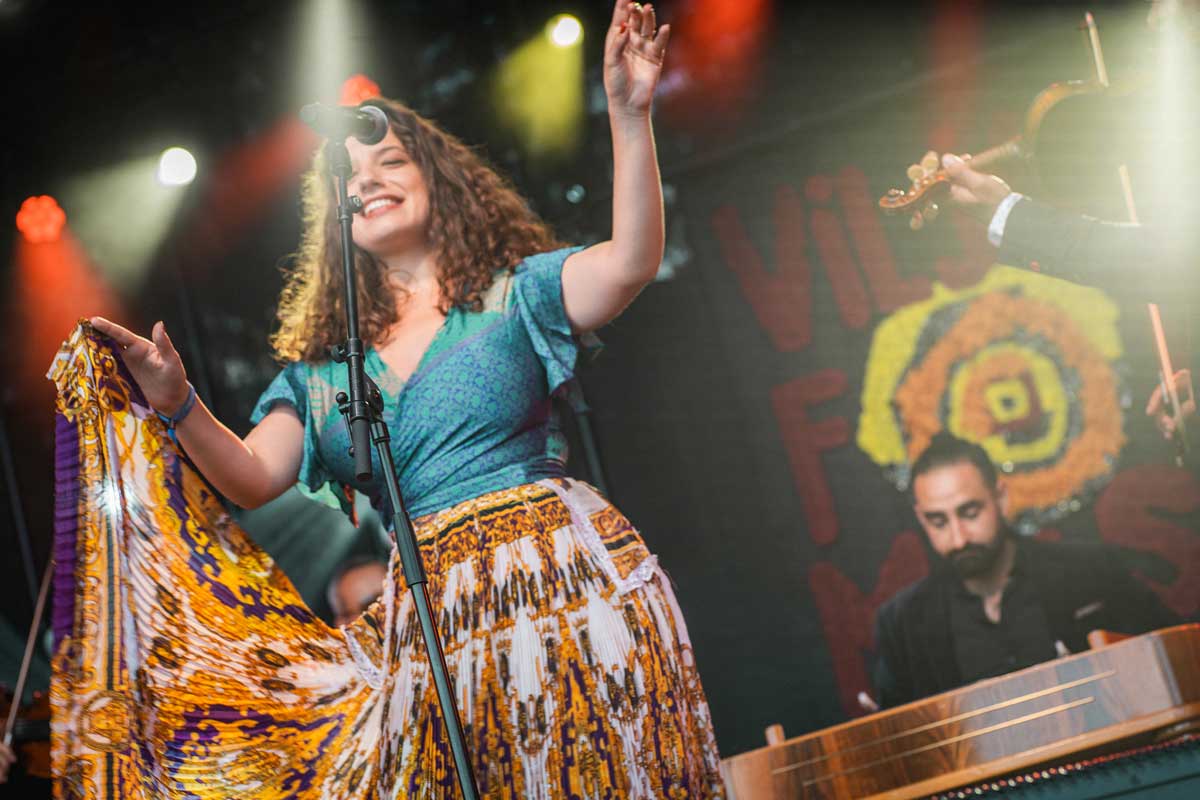
Júlia Kozáková – Photo by Piltnik Kärt
The festival always kicks off with a parade leading from the town to the main stage. There, it is officially opened, with Ando Kiviberg, the festival’s founder and director, taking the stage as the bassist. Throughout the festival, he can be seen performing with various bands. The festival’s opening is not just another dull PR event for Estonia’s President Alar Karis, as he could still be found on the festival grounds four hours later, attentively listening to different bands.
Ando Kiviberg mentioned that throughout the 30 years of the festival’s history, the sitting presidents have always attended, something that is rather hard to imagine at other festivals in Europe.
Festival-goers eagerly awaited the first chords, the initial melodies, and a rhythmic foundation to start dancing, as polkas and polonaises are danced everywhere. As the tempo of the music being performed increased, so did the enthusiasm of the audience, with wild chain dances weaving through the crowds. It didn’t matter who danced with whom – siblings, couples, parents with children, young and old, tall and small – there were happy, sweaty faces everywhere. And for those who didn’t know how to polka dance, various workshops were available. You could also learn how to play the accordion, Kannel (Estonian zither), or bagpipes, participate in a petanque competition, or join the Viljandi Culture Academy, which offers a folk music program, for the Veljo Tormis Sing Along. It was promising but also quite challenging. Singing is prevalent in the Baltic states, and the singing revolution in 1991 brought independence. Since the 19th century, song and dance festivals have been held regularly in the Baltic states, where tens of thousands of people come together to sing.
Veljo Tormis is one of the important Estonian composers who has contributed to the preservation of folk songs. His songs are already harmonically challenging, and combined with the Finno-Ugric Estonian language, this workshop was tough but very rewarding.
A highlight in the concert program on the first evening was the “Folk 30” project, which looked back on the beginnings of the bands through prerecorded videos before they performed live on stage. There was particularly enthusiastic applause for the two bands led by guitarist and singer Jalmar Vabarna, as both Trad.Attack! and Zetod are crowd-pullers and set the stage on fire on Saturday and Sunday evenings. Some of these bands reunited for the 30th anniversary. One of them was Vägilased, who thrilled audiences at ethno concerts from 2000 to 2011. Meelika Hainsoo and her band members brought the magic of the past back to life for one concert.
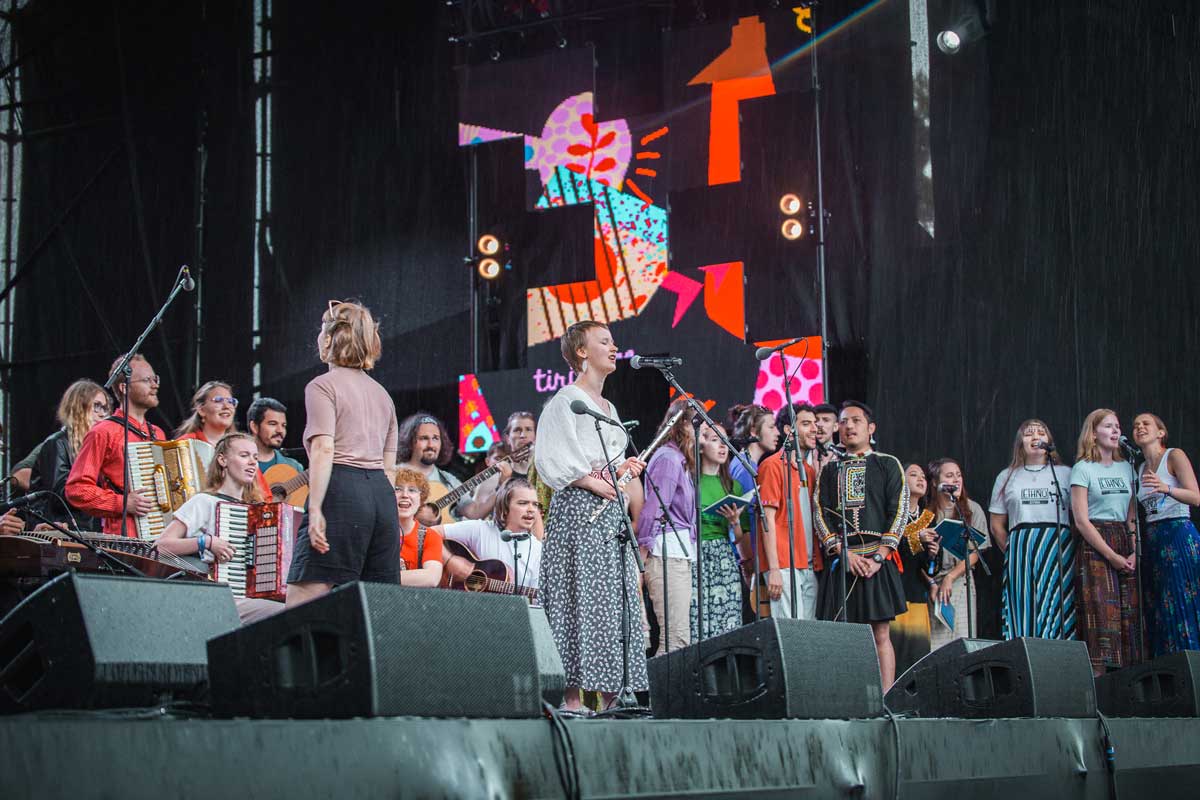
Eesti Etno – Photo by Piltnik Kärt
Eesti Etno, the project of the Ethno Camps, brought incredible energy and joy from the stage to the audience. The enthusiasm of the 70 participants, who had spent two weeks rehearsing traditional pieces with teachers from different countries, was truly infectious.
Cätlin Mägi, a multi-instrumentalist involved in various projects (including a solo program with jaw harp and electronics), performed with her bagpipe students, and seven of those instruments were infernal but perfect for dancing. Mari Kalkun, a singer, Kannel and keyboard player, showcased her new duo project with bassist Nathan Riki Thomsen.
In total, 600 musicians in 99 bands, including 13 from abroad, performed over 70 concerts and hosted 37 workshops. Additionally, there were 70 free concerts.
One absolute highlight for me was the Georgian male choir Tbilisi, and you could already get a taste of their performance during the “Folk 30” event. The nine men in martial costumes with daggers were returning performers, and their brief appearance left everyone curious. The choir’s two concerts, especially in the wonderful acoustics of St. John’s Church, brought tears to the eyes. The performances of Georgian folk and church songs in unique polyphony earned this choral singing a place on UNESCO’s list of Intangible Cultural Heritage.
It was a fantastic, joyful, and peaceful festival where children stood on every corner playing street music with violins, accordions, or recorders.
Thank you to Ando and Tarmo (and their team!) for the idea and execution of the festival, which goes far beyond the musical aspect. Festivals that leave a mess behind have always been a deterrent for the festival team. So, Viljandi has a working deposit system, recycling bins, ample toilets, and, most importantly, handwashing stations and bottle refilling stations everywhere. There was also a wide variety of food offerings, from kebabs and poke bowls to pizza and local dishes, as well as a marketplace where you could buy traditional clothing, get your hands painted with henna, and have flower wreaths – or more importantly, hair braids – done. I’ve never seen so many different braided hairstyles, and anyone with hair longer than ten centimeters had at least one or two strands braided.
The Viljandi Folk Music Festival in 2024 will take place from July 25th to 28th, 2024. More information can be found here on their website.
Last modified: September 5, 2023


